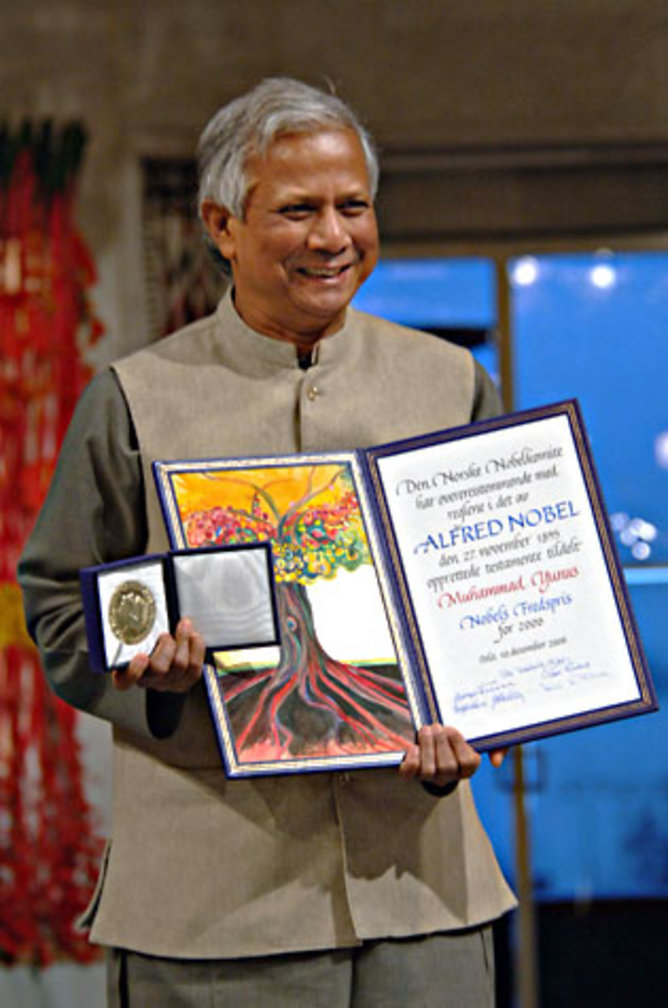Human rights activists say charges politically motivated
By Harinder Mahil
By the time this column is published the Bangladeshi election will be over and Prime Minister Sheikh Hasina will be re-elected with increased number of seats in Parliament. But this column is not about the fairness of the Bangladeshi election but rather how Bangladesh is treating its Nobel laureate Muhammad Yunus.
Muhammad Yunus is an internationally respected banker, economist and civil society leader who was honoured with a Nobel Peace Prize in 2006 and is credited with lifting millions out of poverty with his pioneering microfinance bank. Prime Minister Sheikh Hasina has been extremely critical of him because he was once seen as her political rival.
A court in Bangladesh has convicted Muhammad Yunus and three of his colleagues this week of violating Bangladesh’s labour laws and sentenced them to 6-month prison sentences. Although they were granted bail but there is a real possibility that they can be jailed. All four have denied the charges.
According to Amnesty International, Yunus is facing more than 100 other charges over labour law violations and alleged corruption.
Yunus told reporters last month that he had not profited from any of the more than 50 social business firms he had set up in Bangladesh. “They were not for my personal benefit,” he said.
Irene Khan, former chief of Amnesty International now a United Nations special rapporteur who was present at the verdict, told reporters the conviction was “a travesty of justice”.
“A social activist and Nobel laureate who brought honour and pride to the country is being persecuted on frivolous grounds,” she said.
In August, 160 global figures, including former US President Barack Obama, wrote a letter denouncing the “continuous judicial harassment” of Yunus. The signatories included more than 100 of his fellow Nobel laureates.
The case against Yunus and his colleagues was brought to trial at an unusual speed in contrast with other labour rights-related court cases in Bangladesh. This includes the fires at the BM Container Depot in 2022 and the Hashem Foods Factory in 2021 where almost 100 factory workers were killed due to the employer’s alleged negligence and non-compliance with safety standards. In those cases, the company owners have not faced any criminal liability and evaded accountability by paying paltry compensations.
I hope that people in Bangladesh will demand that Bangladeshi government stop weaponizing labour laws and end their harassment and intimidation of the Nobel Peace Laureate Mohammad Yunus and his colleagues.
Harinder Mahil is a human rights activist and is president of the West Coast Coalition Against Racism (WACAR).





